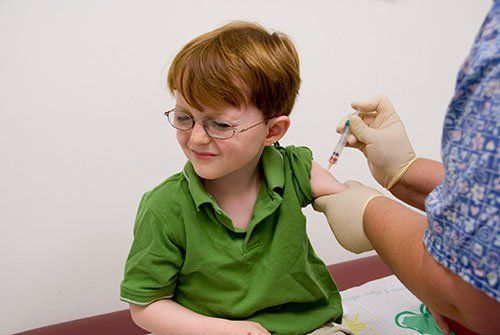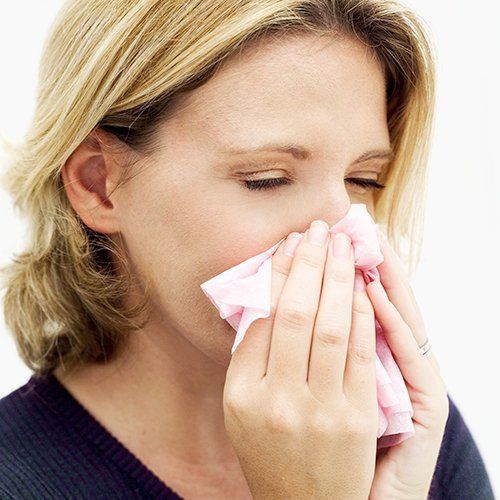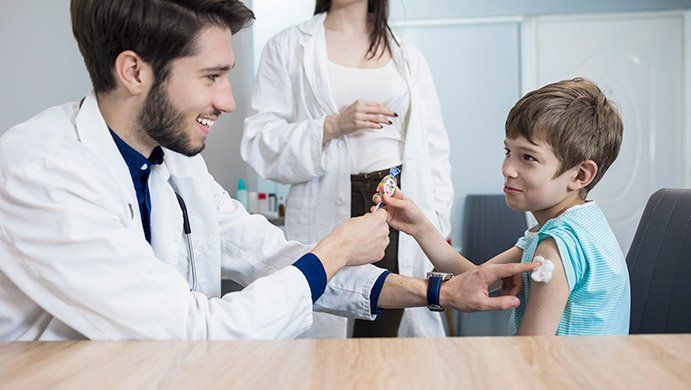Itchy Shins at Night? Thyroid Health May Be an Issue
Admin • May 27, 2021
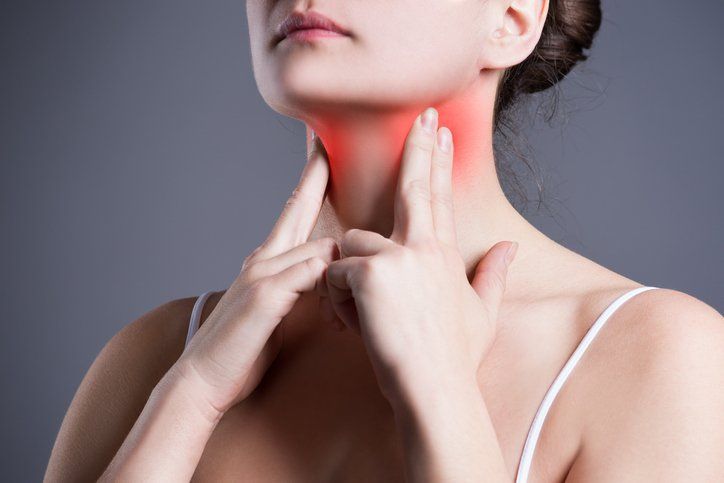
Itchy shins provide a very frustrating level of discomfort when trying to go to sleep. When this problem affects somebody, they may scratch their legs half the night and find rest a near impossibility. Thankfully, this issue is often easy to manage with a little skin cream or other topical treatments.
However, persistently itchy shins could indicate a more problematic concern, one that could affect an individual's overall health in more severe ways. For example, thyroid health issues may trigger itchy shins and make life very difficult without proper treatment.
Itchy Shins May Be a Minor Problem
Although itchy shins at night may be annoying to deal with at the time, this issue rarely indicates a serious health problem. For example, excessively dry skin typically causes most issues with itchy shins. Excessively hot showers or too much time in the bath soaking in hot water, along with other behaviors, can trigger dry skin.
Other individuals may simply scrub their legs too hard when taking a shower or use soap that irritates their skin with harsh chemicals. Just avoiding these behaviors - and trying a more natural soap to clean the shins - often manage this problem quite efficiently. Applications of aloe vera, creams, or other moisturizing treatment methods also help to minimize shin itchiness.
Seasonal changes may also trigger this problem, particularly a shift into winter. During this season, people typically suffer from their driest skin due to running their heater to stay warm. Try to turn down the temperature level to avoid this issue or run a humidifier to add more moisture into the room. These steps may be all the actions needed to prevent itchy shins.
Thyroid Issues May Be to Blame
Though itchy shins typically occur due to dry skin, hypothyroidism can trigger this problem. Hypothyroidism is the medical term for an underactive thyroid. This gland produces a multitude of hormones that provide energy for your body. When this gland doesn't operate efficiently, individuals will suffer from fatigue, depression, constipation, and other issues.
Just as importantly, hypothyroidism can trigger dry skin in many individuals, as the body won't produce enough natural moisturizing elements. This problem may occur throughout the body but is often focused most specifically on the shins. As a result, people with this health issue must contact medical professionals to get help minimizing their symptoms.
Treatment for Hypothyroidism
Those with hypothyroidism should take immediate steps to get help from a medical professional. First of all, the condition must be diagnosed using blood tests. These tests gauge the level of thyroid hormones present in a person's blood. This information helps the doctor assess the severity of the problem and to brainstorm effective treatment methods.
And treatment options vary depending on the severity of the diseases. Typically, doctors start with the least extreme care option possible for the condition and tweak the approach, as necessary, depending on the patient's success. For example, oral medications - including synthetic thyroid hormones - supplement a person's natural hormone levels and minimize symptom severity.
When this treatment method fails, other methods include taking natural thyroid extracts and making dietary changes. Sometimes, an individual with hypothyroidism can get their thyroid working again merely by eating healthier foods. These methods require the use of a high-quality dietitian, though, and aren't sufficient for those with more severe thyroid issues.
Help Is Available
So anyone who suffers from regularly itchy shins should call or visit us at Hampstead Medical Center PC
to learn more about their condition. Our medical experts will gauge your thyroid health and help you fully understand any other health issues contributing to your itchy shins at night.

The IUD, or intrauterine device, is one of the most effective methods of birth control available. Unlike birth-control pills, you do not need to remember daily to administer medication, and the device itself lasts longer than shots and is easier to use than rings. Many women find all of these benefits desirable for a birth-control method. There are two general types of IUDs available to women. The first type is the copper IUD, and the other is hormonal. Which one is right for your personal birth-control needs?

Although the risk of cardiovascular disease increases as you get older, many people who die suddenly of a heart attack didn't previously know they had heart disease. That's why identifying risk factors for heart attack and stroke is so critical to cardiovascular health. Fortunately, with regular exams and the many types of screening tests available, doctors can detect early signs of heart disease.
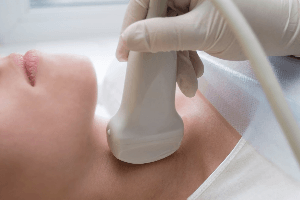
Even if you've never had cause to doubt your thyroid function, if you're a female who has recently given birth, you may be at risk for thyroid issues. An estimated 12 percent of Americans deal with thyroid trouble at some point during their adult lives, and women are significantly more likely than men to develop a thyroid-related ailment. Unfortunately for new mothers, many of the most common signs of an underactive thyroid (like weight gain, mood swings, fatigue, and irritability) are also quite common for those dealing with a newborn's frequent night wakings and the realities of a post-partum body. Read on to learn more about some common (and not-so-common) signs that you could be dealing with a pregnancy-induced thyroid problem as well as some treatment options that can be safely administered or performed while you're breastfeeding. What Can Cause Thyroid Problems During Pregnancy? As with many other hormonal disorders, there are often more questions than answers when it comes to thyroid function. However, researchers have pinpointed a few factors and health conditions that can raise the risk of a woman’s developing a thyroid issue during or immediately after pregnancy. For example, while only around 7 percent of women are at a general risk of developing postpartum thyroiditis, this risk increases to 25 percent for women who have Type 1 diabetes or who dealt with elevated antithyroid antibodies during pregnancy. Women whose anti-peroxidase (anti-TPO) antibodies were elevated during pregnancy may have a 1 in 2 chance of developing postpartum thyroiditis, and those who have dealt with thyroid issues in the past (or during previous pregnancies) also deal with a significantly increased risk. In other cases, thyroid problems may have no cause that can easily be pinpointed; the rush of various hormones during pregnancy and the strain they can put on various systems, including the endocrine system, can create a sort of "perfect storm" in which thyroid problems may thrive. What Are Some Signs You're Dealing With Post-Pregnancy Thyroid Issues? Thyroid problems can take a number of forms, including hypothyroidism (an underactive thyroid), hyperthyroidism (an overactive thyroid), Graves' disease (an autoimmune condition that causes goiter), or Hashimoto's disease (an autoimmune condition in which the body's immune system attacks healthy thyroid cells, eventually stopping all thyroid function). The signs and symptoms for each thyroid disorder are unique and often at opposite sides of the spectrum. For example, hypothyroid patients often report being cold, having dry skin, sleeping more than normal, or gaining weight without trying while hyperthyroid patients sweat profusely, suffer from insomnia, and can lose a significant amount of weight in a brief period. Postpartum thyroiditis often manifests as either an underactive or overactive thyroid, which usually normalizes itself in a few months. Symptoms lasting longer than that or that appear to be getting worse may necessitate medical intervention. What Treatment Options for an Underactive Thyroid Are Best for New Mothers? Whether you suspect you have postpartum thyroiditis or have been formally diagnosed, you may be worried about how your potential treatment options could impact your ability to breastfeed and what effect (if any) they might have on your child. Fortunately, there are a number of effective options from which to choose. If your postpartum thyroiditis is deemed autoimmune in origin, there is some evidence that taking selenium supplements could help normalize your thyroid function without requiring you to take hormonal medication (which might pass into your milk supply). If your symptoms aren't severe and don't impact your daily life, you may instead opt for watchful waiting, maintaining contact with your doctor and reporting any worsening symptoms but avoiding medication or other treatment for the time being. However, if your doctor recommends supplemental thyroid hormone, this usually means some intervention is necessary to prevent permanent damage to your thyroid and the organs and systems that depend on a steady dose of hormones. Make an appointment with Hampstead Medical Center PC to get started taking care of your health.


